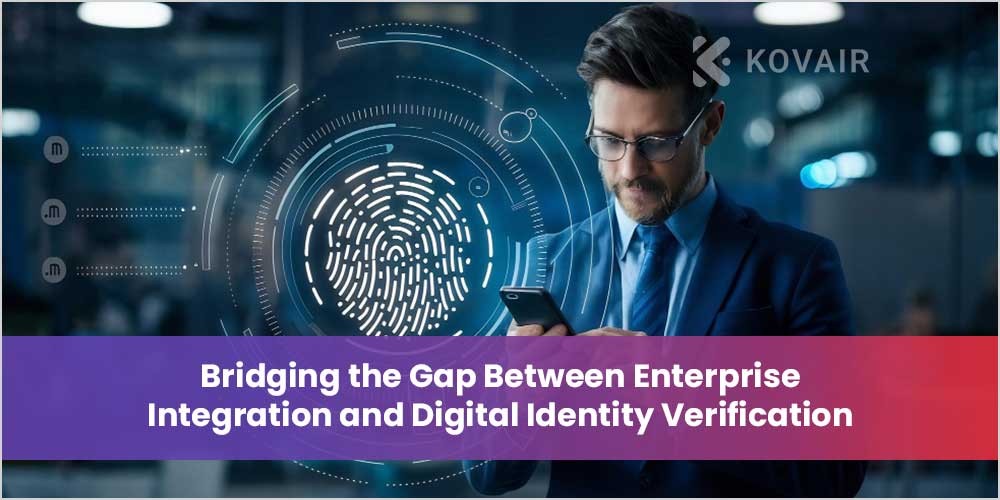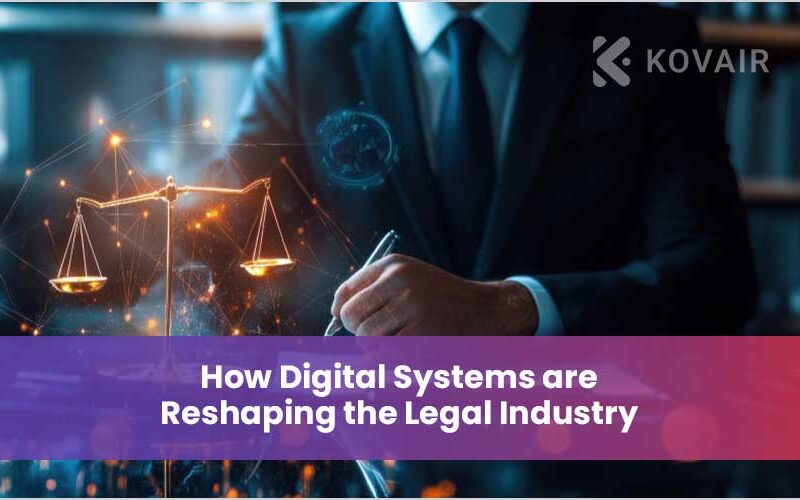
Businesses nowadays depend on an extensive infrastructure of software and machinery to ensure that their operations run smoothly. Integration is crucial in ensuring everything works together, whether it involves managing workflows or facilitating team collaboration. Nonetheless, as companies increase their online presence, the problem of trust and compliance grows on multi-connected platforms.
To address these challenges, enterprise integration and verification of digital identity are now merged in businesses. Not only does this enhance data security, but it also creates a base of digital trust among the systems and users. Once verification is an inseparable component of integration, enterprises will be able to become more agile and have confidence.
Enterprise Integration as a Foundation
Enterprise integration integrates different applications, data sources, and processes in an ecosystem. It assists organizations in silo busting, teamwork, and visibility between the business functions. The highly integrated environment of solutions, such as the integration platform of Kovair, will guarantee the real-time sharing of data and quicker decision-making.
New risks are brought about, though, by this interconnectedness. The information that is sensitive goes through several systems, such as HR, CRM, ITSM software, and without any authorization, one can access it or alter the data. Incorporation of checking systems into such processes ensures the authenticity of the data and inhibits the abuse of the system.
The KYC Identity Verification Role in Integration
KYC identity verification also means that the people who are communicating in the enterprise systems are who they say they are. It has been traditionally applied in the banking and finance sector, but is now becoming a necessity in businesses of other industries. KYC verification provides an additional important security step to the routine work when incorporated into platforms such as Kovair ALM or DevOps automation.
Enterprises can also verify the authenticity of users by automated checks before they are allowed to access or transact business using the systems. This helps to increase compliance, lessen the amount of manual work, and improve customer onboarding practices – but in the current workflow format.
The Increasing Importance of AML Identity Checking
AML verification of identity takes it further to making sure that transactions and data transfer will abide by anti-money laundering rules. In the case of large organizations, it is particularly necessary in the relationship with vendors, access of employees or payment worldwide.
With verification being part of the enterprise integration processes, companies are able to automatically identify suspicious activity, designate high-risk parties, and comply with regulatory frameworks. Systems such as the Kovair ITSM software can seamlessly incorporate these checks so that it does not disrupt productivity in any way.
Developing an Integration Ecosystem of the Secure Form
Digital trust is a solution available to modern enterprises by integrating verification technologies and integration tools. Security as a separate process is replaced with being an intrinsic element of any workflow. Such a combination reduces errors to a minimum, and all the system interactions are checked in real time.
The major benefits of verification integration in the workflow of enterprises are:
- Simplified adherence to the KYC and AML standards.
- More accurate data and less manual input.
- Increased protection and auditing of systems.
- Better customer and employee confidence by means of verified communications.
These advantages emphasize the role of enterprise integration and digital identity verification as the factors that contribute to efficiency and security at the same time.
Adherence and Efficiency of Operation
This is one of the largest challenges to enterprises today: regulatory compliance. Incorporating KYC identity verification, it will make sure that all the customers or partners entering the ecosystem have been verified as per compliance standards. In the meantime, AML identity verification checks the activity constantly to avoid financial fraud or misuse of data.
This integration enhances operational efficiencies in addition to compliance. Enterprises are able to automate verification processes, making them faster, less time-consuming to onboard more individuals, and offering consistent policy implementation. These processes, together with Kovair integration solutions, are included in the digital backbone to facilitate scalable and secure operations.
The Future of Connected and Verified Enterprises
Since the transition to the use of AI, automation, and cloud technologies is becoming more popular with businesses, the necessity of reliable and trusted data exchange will be further vital. The enterprises of the future will not just be systems-integrated, but will incorporate verification logic in each and every layer of its operations.
Applications such as the enterprise integration and DevOps solutions of Kovair will be critical in facilitating this change. Reactive compliance can evolve to proactive trust by combining workflow automation and verification intelligence, and organizations can be as fast, scaled, and secure.
Conclusion
The contemporary business can no longer afford to solely depend on integration to bring about digital success; it should also ensure that all interactions made within its systems are checked. Enterprise integration combined with KYC identity verification and AML identity verification will result in a safe, regulated, and transparent digital ecosystem.
Through the platform of integration by Kovair, organizations can integrate automation, compliance as well and trust in a single umbrella. Not only does this contribute to the efficiency of an operational process, but it also makes sure that the basis of any digital process is established with the help of established authenticity and impeccable reliability.



